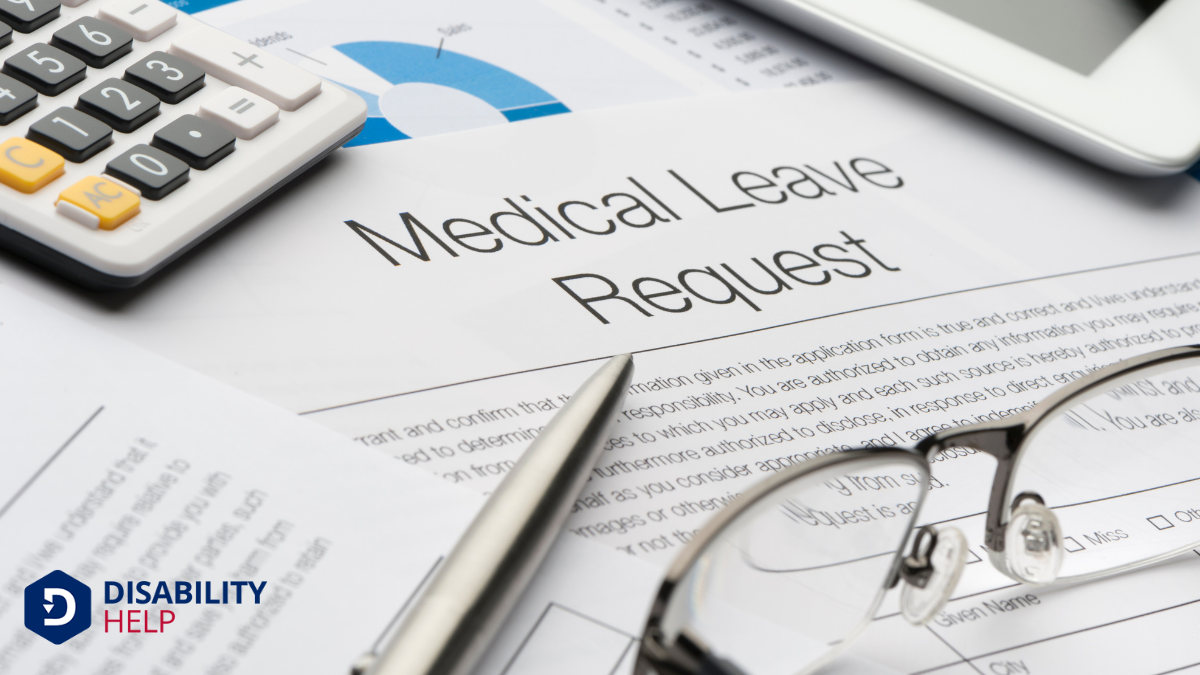I've often wondered about the risk of losing a job due to medical reasons. It's a complex issue that intertwines legal rights and employer responsibilities. On one hand, the law offers protections, yet on the other, there are scenarios where job loss might be justified. Understanding the balance between these aspects is essential. Let's explore how these dynamics unfold and what steps we can take to safeguard our employment when health challenges arise.
Key Takeaways
- Employers cannot terminate employees solely due to medical conditions if they can perform job duties with reasonable accommodationsModifications or adjustments in healthcare settings to support patients with disabilities..
- The ADA protects employees from discrimination based on disabilities, ensuring job security despite health issues.
- Employers must provide reasonable accommodations, such as modified schedules, to support employees with medical conditions.
- Employees are entitled to medical leave under FMLA, protecting their job during health-related absences.
- Termination must comply with employment laws, ensuring fair treatment and confidentiality of medical information.
Understanding Employment Laws and Medical Conditions
Maneuvering the intersection of employment laws and medical conditions can be tricky, but it's important to know your rights. When I faced health challenges, I realized how significant understanding these laws truly is.
Employers often have policies, but it's essential for you to be aware of broader legal frameworks that protect you. These laws can vary, and it's easy to get lost in legal jargon. However, I found that breaking down the information into digestible parts helped me grasp my situation better.
I recommend starting by looking at your employee handbook and then researching federal guidelines. It’s empowering to know the basics of what protections are in place.
Don’t hesitate to ask questions or seek advice—knowledge is your best tool in maneuvering this complex area.
Legal Protections for Employees With Health Issues

When you're facing health issues, it's essential to know your rights under the Americans With Disabilities Act and your medical leave entitlements.
These legal protections can help you maintain job security while addressing your health needs.
Americans With Disabilities Act
Steering through the complexities of employment while managing health issues can be intimidating, but the Americans with Disabilities Act (ADA)A U.S. law that prohibits discrimination against individuals with disabilities in all areas of publi... offers essential protections.
As someone who's faced health challenges, I understand how vital it's to know your rights under the ADA. This law prohibits employers from discriminating against qualified individuals with disabilities.
It requires them to provide reasonable accommodations that enable you to perform your job duties effectively. For instance, if you need a modified work schedule or special equipment, the ADA guarantees your employer considers these requests.
It's comforting to know that the ADA exists to safeguard your employment and dignity, providing a fair chance to succeed at work despite any health-related difficulties you might encounter.
Medical Leave Entitlements
Maneuvering the landscape of medical leave entitlements can feel intimidating, but knowing your rights is essential. I’ve been there, trying to figure out what protections are available when health issues arise.
Thankfully, laws like the Family and Medical Leave Act (FMLA)A U.S. law that provides eligible employees with unpaid, job-protected leave for family and medical ... offer valuable support. Here’s what you need to know:
- Eligibility: You must work for a covered employer and meet specific criteria, such as having worked for at least 12 months.
- Leave Duration: FMLA provides up to 12 weeks of unpaid, job-protected leave for qualifying medical conditions.
- Health Benefits: During FMLA leave, your employer must maintain your health benefits as if you’re still working.
Understanding these components can empower you to advocate for yourself when health challenges emerge.
Employer Obligations in Managing Health-Related Job Concerns
While steering through the complexities of health-related job concerns, it’s crucial to understand your employer's obligations. Your employer must maintain confidentiality regarding your medical information, ensuring that it isn't disclosed without your consent.
They should engage in open discussions about your health needs and work adjustments, fostering an environment of support and understanding.
Your employer is also responsible for adhering to employment laws, which may include providing leave under acts like the Family and Medical Leave Act (FMLA), if applicable. They must handle your situation fairly, without discrimination, and follow company policies consistently.
If you're feeling uncertain about what to expect, don't hesitate to reach out to your HR department for guidance. Remember, understanding these obligations empowers you to advocate for yourself confidently.
The Role of Disability Accommodations in Job Security
Understanding your employer's obligations sets the stage for exploring how disability accommodations can bolster your job security. When I faced challenges at work due to a medical condition, knowing my rights empowered me.
Employers must provide reasonable accommodations, and understanding what that entails can be crucial. Here's how accommodations can enhance your job security:
- Foster Inclusivity: Accommodations can create an inclusive environment, making you feel valued and supported.
- Increase Productivity: Tailored adjustments can help you perform at your best, which benefits both you and your employer.
- Legal Protections: Knowing your rights under laws like the ADA guarantees you're protected if you face discrimination.
Recognizing these elements can help you navigate your work situation with confidence and clarity.
Navigating the Complexities of Medical Leave

Stepping into the domain of medical leave can feel overwhelming, but knowing the essentials helps ease the journey. First, familiarize yourself with your company’s policies and the Family and Medical Leave Act (FMLA) if applicable. Understanding these guidelines guarantees you know your rights and responsibilities.
It’s vital to communicate openly with your employer about your situation. I found honesty builds trust and fosters a supportive environment. Also, prepare any necessary documentation, like doctor's notes, to substantiate your leave request.
Stay informed about your healthcare benefits and any short-term or long-term disability options. Finally, don’t hesitate to reach out to HR or legal advisors for guidance. Charting this path with a clear understanding empowers you to manage your health and career effectively.
Making Informed Decisions Amidst Health Challenges
How do you make the best decisions when facing health challenges? It’s not easy when your job might be on the line. I’ve learned the importance of staying informed and proactive.
Consider these key steps:
- Understand Your Rights: Familiarize yourself with employment laws and your company’s policies on medical leave to guarantee you’re protected.
- Consult Professionals: Speak with your doctor about your condition and its impact on work, and consider seeking advice from a legal expert if necessary.
- Communicate Transparently: Keep an open line with your employer. Being upfront about your situation can help manage expectations and explore potential accommodations.
Navigating health challenges while maintaining job security requires informed decisions and clear communication.
Take control of your circumstances by staying informed and proactive.
Conclusion
In traversing the complexities of working with a medical condition, it’s essential to know your rights and communicate openly with your employer. Remember, the ADA offers protections, and you’re entitled to reasonable accommodations. If you’re facing challenges, consult HR or a legal advisor to understand your options. Ultimately, staying informed and proactive helps protect your job and well-being, ensuring you make the best decisions amidst health challenges. You're not alone in this journey.






